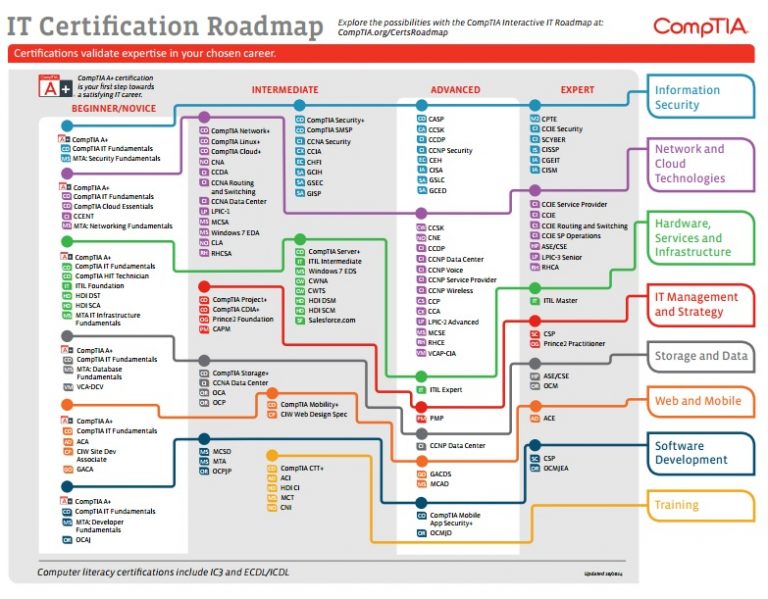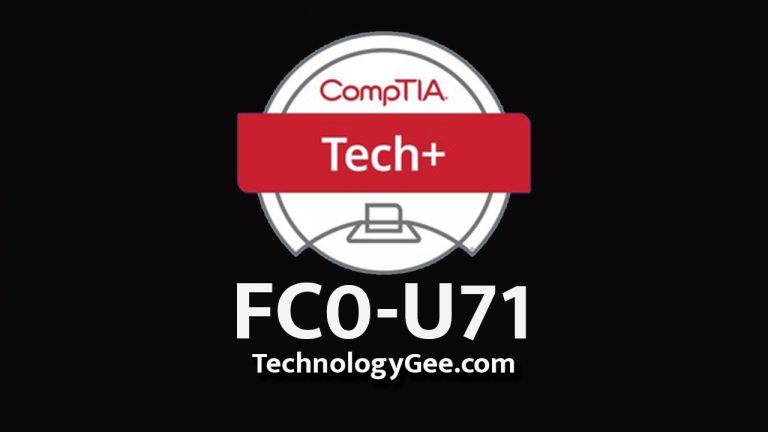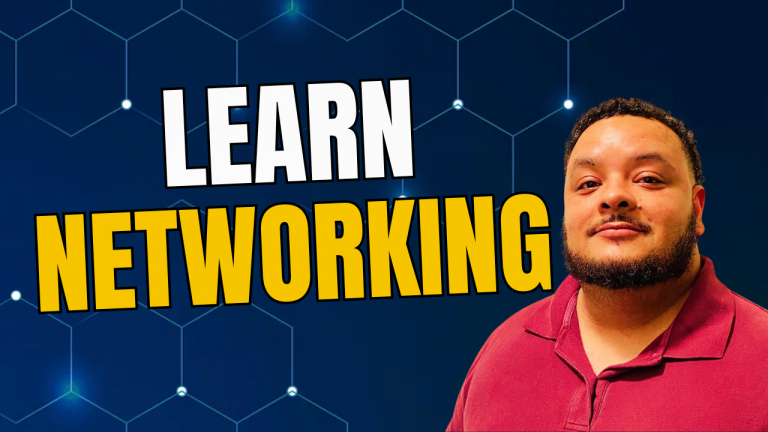What is the CompTIA A+ Certification?

If you’ve been thinking about getting into the IT field, chances are you’ve come across the CompTIA A+ certification. Maybe someone recommended it as a first step. Maybe you saw it listed in a job posting. Or maybe you were just Googling “how to break into tech with no experience”. Either way, let’s get real about what the CompTIA A+ actually is, what it covers, and how it can impact your career.
What Is the CompTIA A+ Certification?
At its core, the CompTIA A+ is an entry-level IT certification designed to prove you have the essential technical knowledge and hands-on skills needed for roles in IT support and troubleshooting. It’s vendor-neutral (meaning it’s not tied to Microsoft, Apple, Cisco, or any one tech company) and is issued by CompTIA, a trusted non-profit trade association known for creating globally recognized certifications in the IT industry.
The A+ cert focuses on foundational topics like:
- Computer hardware (desktops, laptops, mobile devices)
- Software and operating systems (Windows, macOS, Linux, Android, iOS)
- Networking basics
- Cybersecurity fundamentals
- Troubleshooting techniques
- Virtualization & cloud computing
- IT operational procedures
You earn the certification by passing two exams:
- CompTIA A+ Core 1 (hardware, networking, mobile devices, cloud, virtualization)
- CompTIA A+ Core 2 (operating systems, security, software troubleshooting, operational procedures)
Each exam has up to 90 questions & lasts 90 minutes. The questions are a mix of multiple choice, drag-and-drop, and performance-based simulations.
Who Should Get the CompTIA A+?
The A+ certification is perfect for:
- People new to IT who want to start a tech career
- Career changers looking to transition into tech support or help desk roles
- Students in high school or college looking to boost their resumes
- Military veterans entering the civilian workforce
- Anyone wanting to build a strong foundation before tackling more advanced certs like Network+ or Security+
You don’t need any prior experience to take the A+. That’s one of the reasons it’s so popular…it’s accessible. But it definitely helps to study and get some hands-on practice through a home lab or online simulations.
What Are the Benefits of Getting the CompTIA A+?
Why should you actually bother getting this certification?
It Opens the Door to IT Jobs (Even Entry-Level Ones)
Many employers see the A+ as a baseline requirement for hiring help desk technicians, desktop support specialists, and other junior-level IT roles. It shows that you know how to fix things, procedures, and understand the core building blocks of IT.
In fact, major companies like Dell, Intel, HP, Ricoh, and the US Department of Defense all recognize or require the CompTIA A+ for certain roles.
It’s a Confidence Builder
Let’s face it, breaking into tech can be intimidating. Getting A+ certified proves to yourself (and the world) that you’re serious and capable. That alone can do wonders for your confidence and motivation.
It Sets the Stage for More Advanced Certifications
Think of A+ as your tech career’s launching pad. Once you’re A+ certified and gain some real-world experience, you can move on to certifications like:
- CompTIA Network+ (networking)
- CompTIA Security+ (cybersecurity)
- Microsoft, AWS, or Cisco certs
All of which lead to higher-paying and more specialized jobs.
It Can Help You Stand Out in the Job Market
Even if a job doesn’t require A+, having it on your resume can still give you a leg up. It signals to employers that you have foundational knowledge, that you’ve invested in your professional development, and that you’re ready to get to work.
You Don’t Need a College Degree to Get It
In today’s job market, skills often matter more than degrees especially in IT. While a degree can help, many tech professionals have built successful careers starting with just their A+ cert and hustle.
What Kind of Jobs Can You Get With the CompTIA A+?
Here are some of the most common job roles people land after earning their CompTIA A+.
Help Desk Technician / IT Support Specialist
This is one of the most typical first jobs. You’ll answer support tickets, troubleshoot user issues (software, hardware, connectivity), reset passwords, and keep systems running smoothly.
- Average Salary: $45,000 – $55,000 per year
- Skills Used: Troubleshooting, communication, operating systems, ticketing systems
Desktop Support Technician
You’ll handle on-site or remote support for desktops, laptops, printers, and mobile devices. Often involves hardware repair, imaging devices, & software installations.
- Average Salary: $50,000 – $60,000
- Skills Used: Hardware repair, imaging, OS configuration
Field Service Technician
You travel to different locations (clients, branch offices, retail stores) to set up & troubleshoot hardware and network equipment.
- Average Salary: $45,000 – $60,000
- Skills Used: Customer service, networking, cabling, hardware swaps
Technical Support Specialist
This role might focus more on supporting specific applications or platforms. You might work for a software company helping customers with installation issues, bugs, or usage questions.
- Average Salary: $50,000 – $65,000
- Skills Used: Application support, documentation, remote troubleshooting
IT Operations / Support Analyst
As you get more experience, you might move into support analyst roles that involve monitoring systems, analyzing logs, managing user accounts, and supporting IT projects.
- Average Salary: $55,000 – $70,000
- Skills Used: Scripting, log analysis, OS support, ticketing
Junior Cyber Security Technician (with additional certs)
If you follow up A+ with Security+, you might qualify for entry-level security roles like SOC analyst, security technician, or vulnerability analyst.
- Average Salary: $60,000 – $80,000
- Skills Used: Monitoring, documentation, basic security tools
- Bonus Tip: If you pair the A+ with strong communication skills, a good attitude, and a willingness to learn, your career can move fast. Employers love people who are trainable, proactive, & reliable.
Is the A+ Certification Still Worth Getting?
Some people argue that the A+ is outdated or too basic. Others say it’s essential for anyone starting out. So what’s the truth?
Here’s the deal, the A+ is absolutely still worth it for beginners. But its value depends on your goals and how you use it.
- If you already have 3+ years of hands-on IT experience, you might skip it.
- If you’re trying to land your first IT job, the A+ can help open that door.
- If you’re aiming for cybersecurity or networking long term, the A+ gives you the foundation.
Think of it like getting your learner’s permit before driving a Ferrari. It’s not glamorous, but it’s necessary. Also don’t forget, the A+ is updated every few years to reflect changes in tech.
How Long Does It Take to Get A+ Certified?
This varies depending on your background and how much time you can dedicate to studying.
Here’s a rough estimate:
- Beginner with No IT Experience: 3 to 6 months
- Some Tech Experience (Like Fixing Computers): 1 to 3 months
- Full-Time Student or Bootcamp Attendee: 4 to 8 weeks
Most people study using a combination of:
- Video courses
- Study guides
- Practice tests
- Labs
You can take the exams in person at a testing center or online with remote proctoring.
How Much Does It Cost?
Getting A+ certified isn’t free, but it’s relatively affordable compared to college. Here’s a breakdown of the typical costs:
- Exam voucher (each exam): $265
- Study materials: $0 – $1,000 (depending on whether you buy courses, books, or bundles)
Some providers offer bundles that include training + practice tests + vouchers at a discount. If you’re a student, military vet, or unemployed, look for discounts and training grants too.
What Should You Do After Getting A+?
Here are your next steps:
- Start Applying to Jobs
- Search job boards for “IT Support”, “Help Desk”, or “Technical Support” roles. Tailor your resume to highlight your A+ cert and any hands-on experience (even if it’s from a home lab or volunteer gig).
- Build a Home Lab or Keep Practicing
- Stay sharp by continuing to tinker. Try setting up virtual machines, configuring a small network, or documenting fixes in a portfolio.
- Study for Your Next Cert
- If you’re interested in networking, go for CompTIA Network+. If you want to get into cybersecurity, aim for Security+. Cloud curious? Look at AWS Certified Cloud Practitioner or Google IT Support.
- Join Tech Communities
- Reddit, Discord servers, LinkedIn groups – there are tons of free space where you can learn, ask questions, and network with others in the industry.
Is the CompTIA A+ Your Ticket Into IT?
Look, no certification is a magic wand. But the CompTIA A+ is one of the most recognized stepping stones into the IT industry. If you’re brand new to tech and want to break in, this cert helps you speak the language, understand the tools, and prove to employers that you’re ready to roll up your sleeves and solve problems.
Think of it as your passport to opportunity. Whether you want to be a technician, work in a help desk, or eventually move into networking, cybersecurity, or cloud engineering; the A+ lays the groundwork.
And once you’re in, the sky’s the limit. So if you’re on the fence, here’s your sign: go for it.















